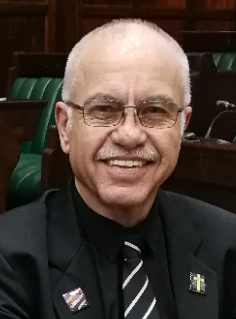Ferrier International sharing the financial news thanks to FNB Chief Economist Cees Bruggemans for this article.
******************************
| Global free riders |
 |
|
By Cees Bruggemans, Chief Economist FNB |
| 01 December 2008 |
 |
|
A hundred banking systems must be in trouble. For 100 countries are bailing their banks or are underwriting their banking systems. But out of 200 countries it presumably means some 100 countries aren’t bailing. Must be good DNA. Pick your parents, or at least your bank regulators, carefully. But more is at stake now. The world economy is descending into the severest recession in years. There has been a call to arms. And many have responded, some heroically. The That’s big. Then again, carefully watch some European countries. They don’t seem eager to jump in boots and all. They fear any consequences five years down the line. A repeat financial crisis, if too much stimulus is provided now? Besides, when things get as uncertain as they have now, Germans for instance have a way of saving any tax cut rather than spent it USA-style. So why waste piling up government debt if it will only boost private savings rather than public spending? And some of that in Irish banks, too. Besides, there is another aspect. It is called the free rider problem. Don’t do anything, for Americans, Chinese, British, Japanese and others will do all the heavy-lifting out of pure self-preservation. They HAVE to boost their sagging economies. If other countries do all the boosting, and overdo it in typical fashion, the world will get lifted out of its misery faster than you think anyway. All boats rise on a rising tide, even rotting hulks. Why then do anything yourself, with much higher long-term bills to pay for the pleasure, compared to far lesser burdens if one can benefit from the neighbours’ good-neighbourliness? This may not reflect good neighbourly spirit, but spirit has little to do with what is playing here. Those irresponsible before need to pay penalties now. Those who didn’t participate in the locust culture of yesterday need not pay the penalties, yet can hugely benefit from the locusts paying penitence now. For some a free lunch may be coming into view. Some emerging markets are also in that league, though appearances may deceive. All this, so that many more Chinese could get new jobs, save 40% of income and create yet more Chinese jobs. Now that the global clarion call has been sounded, and all good men summoned to man the oars and the pumps, South Africans may be forgiven to plead a headache and sit out the show. Why should we heavily prime the spending pumps? Yes, it will limit the growth undershoot currently aiming for recession territory in early 2009, but it will also leak demand overseas, reinforce our trade deficits and worsen our dependency on foreign capital and the future financial instability this could imply. Let the world raise its red flag and go to battle. But could we like some others beg off for the main effort, thank you, as it wouldn’t be entirely in our favour, potentially deteriorating our national finances too much? Meanwhile the global effort should resuscitate global demand, certainly eventually, and we will be natural beneficiaries of any global export resurgence and improving capital market activity. Happily, we don’t belong to any club (except G20), and our missing from the ranks shouldn’t be noticed too much. Besides, we are battling our main problem, which apparently isn’t unemployment or even inflation. It is the savings shortfall, also known as the current account deficit. And instead of giving us good reasons to save, such as less redistributive emphasis, we may try the negative approach by simply not growing too fast, in the process passively waiting for a recuperating global economy to favour us. Sometimes it pays not to volunteer. Leave it to the Americans and others to sacrifice their taxpayers. In the process, we may start to look more like Europeans in spirit by the day. Yet such a choice has its attractions. Nations don’t have friends, only interests (an old British dictum put into words by Palmerston). We might as well practice such good advice while we can. But perhaps we should guard against accepting too much growth sacrifice. Not everyone may quite understand the good cause of saving the national finances over their bare backs, and could even be ungrateful. Cees Bruggemans is Chief Economist of First National Bank. Register for his free e-mail articles on www.fnb.co.za/economics
|
 |
*******$$$$$*******$$$$$$$*******$$$$$*******
Ferrier International keeping you informed.






